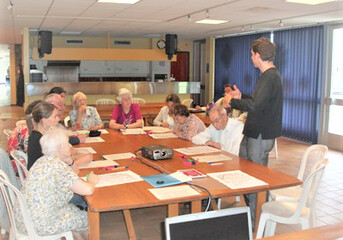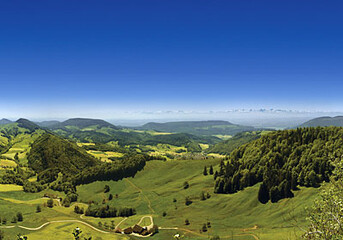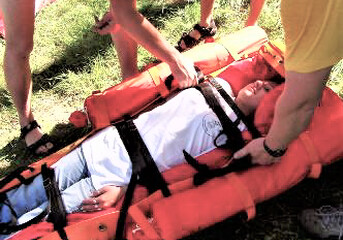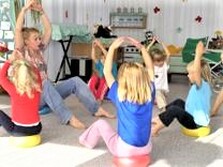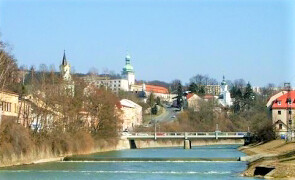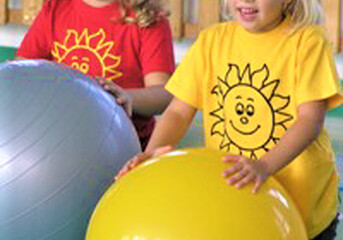ISLAND: Reykjavík: Jak podpořit volný čas dětí a vytvořit zdravější a bezpečnější město 
Basic information
| Name of the city/town/region: | |
|---|---|
| Organization: | Reykjavík city |
| E-mail: | |
| Subject: |
Kvalita a prostupnost vzdělávání; inovativní aktivity škol; poradenství pro rodiče Sport, pohybové aktivity a místní rekreace Kultura, společenský život, volnočasové aktivity, dobrovolnictví |
Description and outputs |
|
| Čeho se podařilo v rámci Vašich aktivit/projektů dosáhnout? | Children and young people who participate in organized sports and leisure activities have been shown to be less likely to engage in risky behaviour, including alcohol and drug use. Thanks to the joint efforts of the city of Reykjavík, the sports movement, the school community and other stakeholders, huge successes have been achieved in reducing risky behavior among children and youth. The city gradually develops projects to support those groups of society that especially need it, therefore this project was launched in a district where the percentage of children engaged in sports in their free time was lower than in other districts. |
|---|---|
| Describe the main purpose / aim of your activity / project. What were its side effects or secondary results? | Main objectives: The pilot project of free time activities in Reykjavík is aimed at promoting health, sports and active spending of free time among children and youth. Emphasizes increasing the use of the so-called leisure cards, development of social relationships, support of language skills in Icelandic and integration of children with different cultural and social backgrounds. The project focuses on children in the first and second years of elementary school, because it is at this age that it is crucial to involve children in activities that support the creation of social bonds. These ties increase the likelihood of long-term participation in activities and facilitate their adaptation in society. Specific objectives: • To increase the participation of children with an immigrant background and marginalized groups in sports and leisure activities to the level of the average in Reykjavík. • Improve the use of the leisure card among these groups to the level of the average. • Facilitate the social integration of children with different cultural backgrounds into Icelandic society. Project outputs: The pilot phase of the project demonstrated a positive impact on children's participation in sports and leisure activities. Specifically: • Proportion of active children: At the beginning of the project, 65% of children were active in the Breiðholt district. By the fall of 2021, this share has risen to 77% and in 2022 to 80%. • Increased participation of children from immigrant families: Despite the growing number of children of immigrant background, who are usually less likely to use leisure activities, there has been an increase in participation. • Prevention of risky behaviour: Children and young people involved in organized activities are less likely to engage in risky behaviour, such as alcohol and drug use. |
| Were the implemented activities documented? | We can read about the project in the document dedicated to the preventive program in Iceland, see the attachment. |
| Start of activity: | 01.01.2020 |
| Attachment | příloha realizace |
Budget |
|
| What were the financial costs of carrying out the activity? | [tis. Kč] 13 000 CZK for a card |
| How was the activity funded? | The project uses a leisure card system that provides a subsidy of ISK 75,000 per year for each child aged 6-18 years old and a permanent resident of Reykjavík. This amount covers part of the costs of participating in sports and leisure activities. Additional funding is provided by the City of Reykjavík. |
Recommendations and inspiration |
|
| What recommendations / advice can be deduced from the implementation of your activities and provided to other municipalities with a similar intention? | Recommendations for other municipalities • Building relationships and trust: Personal communication with parents and children through leisure ambassadors increases engagement and motivation. • Close collaboration with schools and coaches: Helps children integrate into communities. • Targeted prevention: Supporting leisure activities has a direct effect on reducing risky behavior among young people. |
| Attachment | příloha doporučení |
Risk, obstacles and positive moments in the implementation process |
|
| During the implementation of the activities / project, did you encounter an event that fundamentally affected the implementation? | Several key moments occurred during the implementation of the project: • Group of Cultural Ambassadors: Parents and residents from 16 different linguistic and cultural groups formed a volunteer group that enabled direct communication with thousands of parents in their mother tongue. This move fundamentally improved inclusion. • Support of the city leadership: The support of the mayor of Reykjavík and the city council, which supported this initiative, was essential. |
Monitoring and evaluation |
|
| Has the impact of the implemented activity / project been measured and evaluated in any way? | The project was evaluated based on the use of the leisure card. The latest results show an increase in its use by 7% between 2021 and 2022, which directly corresponds to greater participation in sports and leisure activities. |
| Attachment | příloha monitorování a evaluace () |
| Do you plan to further develop/maintain the activity/project? | Going forward, the project is planned to be financed through a combination of city budget resources, grants and partnerships with the private sector. The City of Reykjavík intends to continue to support leisure activities as part of its investments in public health and social cohesion, planning a long-term budget for this area. In addition, it focuses on ensuring sustainability through sponsorship from local companies and grant programs that will enable flexible and long-term financing of diverse activities. These steps will ensure that activities continue to be accessible to all children regardless of their financial situation. |
Media, promotion |
|
| How was the communication with the media and what were the media outcomes? | The media played a key role in disseminating information about the project. Information was regularly published in local newspapers and on Facebook, which is widely used by local residents. In addition, platforms such as YouTube, Telegram and specific Facebook groups were used for targeted communication with different linguistic and cultural groups. |
Partakers |
|
| Name: | město Reykjavík, Island |
| Company number or other registration data: | 530269–7609 |
| Address: | Tjarnargata 11, 101 Reykjavik |
Another partakers |
|
| Název: | Základní školy a střediska volného času (5) Místní sportovní kluby (3) |
Name: | Kulturní ambasadoři a sdružení rodičů (16) |


